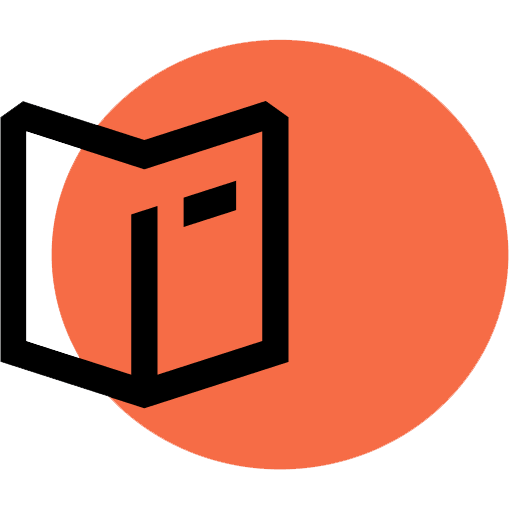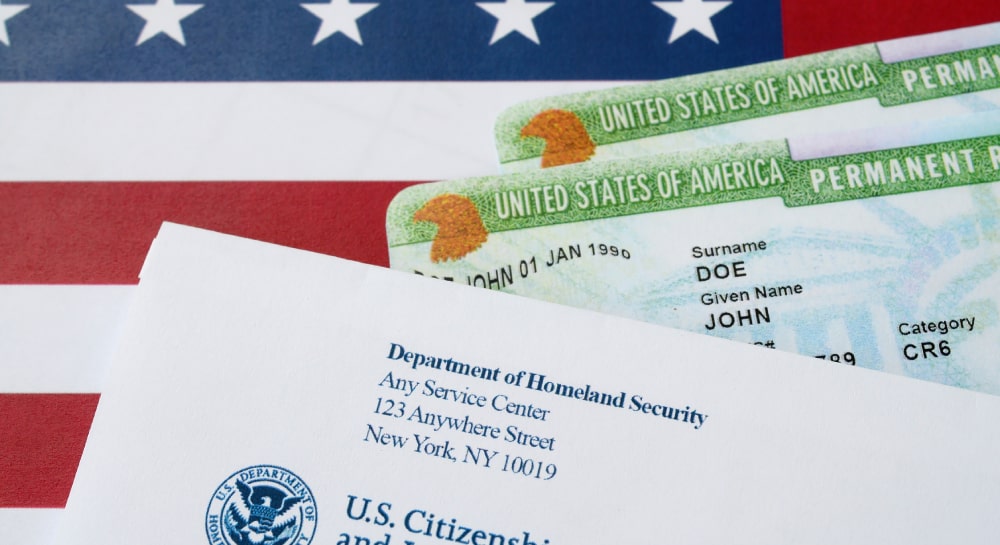Are you a nursing professional dreaming of new horizons? Imagine the rich cultural tapestry of Vienna, the charm of the Austrian Alps, and the opportunity to advance your nursing career in one of Europe’s most beautiful settings. Welcome to our guide on ‘How to Work and Immigrate to Austria as a Nurse’ – your first step towards a life-changing journey in the heart of Europe.
How Can I Work as a Nurse in Austria?
To work as a nurse in Austria, you must follow the steps listed below:
- Secure a Job Offer
- Red-White-Red Card Application
- German Language Proficiency
- Registration in the Health Professional Register
- Temporary Work Permission
Step 1. Secure a Job Offer
Obtaining a job offer is the first critical step when you decide to immigrate to Austria as a nurse. This involves a proactive job search, targeting healthcare institutions where your skills are most needed. Since nursing is often recognized as a shortage occupation in Austria, skilled nurses are in high demand. A job offer is not just proof of your professional capabilities but also forms the basis for subsequent immigration and work permit applications.
For your job search, you can utilize online portals such as Karriere.at, StepStone Austria, and Indeed Austria, which frequently list nursing positions. Healthcare recruitment agencies like EPSN Workforce, Trenkwalder, and Headcount Solutions are valuable resources. It’s essential to tailor your application to meet the specific requirements of Austrian healthcare employers. Networking, attending job fairs, and connecting with professional associations can also be effective strategies.
Step 2. Red-White-Red Card Application
The Red-White-Red Card is a special work visa issued by the Public Employment Service (Arbeitsmarktservice, AMS) for skilled workers in shortage occupations, like nursing. To apply, you must present a binding job offer in Austria and meet the criteria set out in the Austrian points system, which assesses factors like professional experience and language skills.
Successfully acquiring this card allows you to legally work in Austria for 24 months, with the possibility of extension or transition to permanent residency. This card streamlines the process for skilled workers to enter and work in Austria, aligning with the country’s demand for professional expertise in healthcare.
Step 3. German Language Proficiency
Proficiency in German is essential for nursing professionals in Austria, as it’s the primary language in healthcare settings. Depending on your role and responsibilities, you must demonstrate language competence, typically at a B1 or B2 level. You can find some examples below:
- Goethe-Zertifikat
- Telc Deutsch
- ÖSD
- TestDaF
- ÖIF
- DSH (Deutsche Sprachprüfung für den Hochschulzugang)
Language skills are a regulatory requirement and crucial for effective communication with patients and colleagues. Achieving this level of proficiency may require attending language courses and passing a recognized language test. This ensures you can immigrate to Austria as a nurse.
Step 4. Registration in the Health Professional Register
Registration in the Austrian Health Professional Register is a pivotal step for people wishing to immigrate to Austria as a nurse. This process commences once your nursing qualifications, whether acquired in Austria or abroad, are recognized. The registration is a formal acknowledgment of your compliance with Austrian healthcare standards and regulations. It’s not merely a procedural step; it’s a significant mark of your qualification and eligibility to provide healthcare services in Austria. The registration confirms to employers and patients that you meet the professional and ethical standards expected of healthcare practitioners in Austria.
The process involves submitting your personal information, professional credentials, evidence of German language proficiency, and other necessary documentation to the Austrian health authorities. Being listed in this national database is essential for maintaining the quality of healthcare services. Moreover, it is crucial for ensuring patient safety and upholding the high healthcare standards in Austria. This registration affirms nurses’ skills and dedication and enhances their professional standing and mobility within the Austrian healthcare sector.
Step 5. Temporary Work Permission
Temporary work permission in Austria offers a practical solution for foreign-trained nurses awaiting full recognition of their qualifications. This permit allows you to work in a supervised role within the Austrian healthcare system, offering a chance to gain hands-on experience and Get acquainted with the healthcare practices and standards in the local area. It’s an essential step for integrating into the Austrian healthcare environment, showcasing your commitment and adaptability to potential employers. This interim arrangement benefits both nurses in transition and the Austrian healthcare sector, ensuring a smooth and efficient integration of skilled nursing professionals.

How Much Are Nurses Paid in Austria?
The salary of nurses in Austria can vary based on factors such as experience, qualifications, the type of healthcare facility, and the region. The average salary for a nurse in Austria typically ranges from approximately €30,000 to €45,000 per year. Entry-level positions may start at the lower end of this range, while experienced nurses, especially those with specialized skills or in senior positions, can earn towards the higher end.
These numbers are subject to fluctuations and may differ; thus, checking current salary data or job listings for the most accurate and up-to-date information is advisable.
Additionally, salaries can also be influenced by additional benefits, working hours, and overtime pay.
What Are Some Nursing Jobs in Austria for Foreigners?
Foreigners can find nursing jobs in Austria in various healthcare settings but must meet specific criteria. Hospitals, private clinics, elderly care homes, and home healthcare services are common workplaces. Foreign-trained nurses must have their qualifications recognized by Austrian authorities and typically demonstrate German proficiency.
Non-EU/EEA citizens require a work permit and visa, usually sponsored by an Austrian employer. Professional registration with the Austrian Health Professionals Association is also necessary. These positions offer an opportunity to work in a country with a high standard of healthcare. Still, it’s crucial to navigate the process of recognition, language requirements, and legal work permits.
How Many Nurses Are There in Austria?
Roughly 99.000 individuals are working in non-medical health professions in Austria’s hospitals. This figure includes nurses but is not exclusive to them, encompassing all non-medical health staff. Additional data sources would need to be consulted for a precise count of nurses.
Is Austria in Need of Nurses?
Yes, like many European countries, Austria experiences a demand for nurses. This demand is driven by factors such as an aging population, a growing need for healthcare services, and a shortage of healthcare professionals in certain areas. Hospitals, clinics, elderly care facilities, and home care services are sectors where nurses are particularly in demand.
The need for nurses in Austria provides local and internationally trained nurses opportunities. However, for those outside Austria, it’s essential to meet specific requirements like language proficiency in German and recognition of foreign nursing qualifications by Austrian authorities if they wish to immigrate to Austria as a nurse.
This situation makes nursing a promising career path in Austria, offering opportunities for employment and professional growth in a country known for its high standard of living and quality healthcare system.
Can a Foreigner Get a Job in Austria as a Nurse?
Yes, foreigners can work as nurses in Austria, but they need to meet Austrian nursing education and licensing standards. Proficiency in German is essential, and qualifications from abroad may need recognition. Finding a job offer, securing a work permit, and potentially obtaining a residence permit are part of the process.
What Are Some Nursing Assistant Jobs in Austria?
In Austria, nursing assistant jobs include roles in hospitals, nursing homes, and home healthcare services. Responsibilities often involve assisting with patient care, such as bathing, dressing, and primary medical care. Nursing assistants support registered nurses and doctors, help with mobility and exercise routines, and monitor patient health. These positions typically require specific training and may also require German language proficiency. Additionally, nursing assistants play a crucial role in patient comfort and emotional support.
How to Become a Nurse in Austria?
Becoming a nurse in Austria involves several steps, which include education, obtaining licensure, and meeting language requirements. Here’s a detailed overview:
- Education
- Licensure
- Student Visa
- Language Proficiency
- Job Search
- Continuous Education
- Recognition of Foreign Qualifications(If Applicable)
- Work Permit and Residency (for Non-EU Citizens)
- Joining a Professional Association
Step 1. Education
- To become a registered nurse in Austria, you must complete a nursing program. This usually involves a three-year diploma program offered at healthcare schools (Gesundheits- und Krankenpflegeschulen) or a bachelor’s degree in nursing from a university.
- The program consists of both theoretical and hands-on instruction in various areas of healthcare.
Step 2. Licensure
- After completing your education, you must obtain a nursing license from the Austrian health authorities. This license is necessary to work legally as a nurse in Austria.
- The licensing process might include exams or assessments to test your medical knowledge and skills.
Step 3. Student Visa
- First, to apply for a student visa for Austria, secure admission to an Austrian educational institution, ensuring you meet their requirements. Prepare the necessary documents, including evidence of financial assets, health insurance, and a clean criminal record certificate. Submit a visa application at the Austrian embassy or consulate in your home country, attend any required interviews or biometric appointments, and await the visa decision.
- Once approved, travel to Austria before the visa’s expiration date, complete any local registration and apply for a residence permit if your stay exceeds 6 months. Throughout your studies, adhere to Austrian regulations and maintain your student status.
Step 4. Language Proficiency
- Proficiency in German is crucial, as it’s the primary language used in healthcare settings in Austria. You should prove your proficiency through a recognized language test.
- The required level of language proficiency can vary, but generally, a B2 level under CEFR is expected.
Step 5. Job Search
- After obtaining your license, you can apply for nursing positions. Hospitals, health clinics, and other healthcare facilities are the primary employers.
- Online job portals like Karriere.at, StepStone Austria, and Indeed Austria offer a range of listings for nursing job opportunities in Austria. Recruitment agencies such as EPSN Workforce, Trenkwalder, and Headcount Solutions also specialize in healthcare, providing access to various nursing positions. These resources are instrumental in facilitating a targeted job search in the nursing field.
Step 6. Continuous Education
- In Austria, nurses are required to participate in continuous professional development to ensure the currency of their skills.
- This may involve attending workshops, seminars, or additional training courses.
Step 7. Recognition of Foreign Qualifications(If Applicable)
- If you obtained your nursing qualification outside of Austria, you would need to have it officially recognized by the Austrian authorities.
- This process might involve additional tests or adaptation periods depending on where and how you were trained.
Step 8. Work Permit and Residency (For Non-EU Citizens)
- If you are from a non-EU country, you must also obtain work and residence permits to live and work in Austria legally.
Step 9. Joining a Professional Association
- While not mandatory, joining a professional nursing association can provide benefits like networking opportunities, access to advanced development resources, and updates on changes in healthcare policies, specifically for those who would like to immigrate to Austria as a nurse.
How Many Years Is Nursing in Austria?
In Austria, the duration of nursing education typically involves a three-year diploma program. This program, offered at healthcare schools, combines theoretical instruction and practical training necessary to become a registered nurse. Alternatively, one can pursue a bachelor’s degree in nursing, which also generally spans three years.
Immigrate and Work as a Nurse in Austria: Let’s Recap!
Embarking on a nursing career in Austria presents a unique blend of professional growth and cultural enrichment. With its high demand for skilled nurses, comprehensive training programs, and a commitment to quality healthcare, Austria offers a rewarding pathway for both local and foreign nursing professionals. If you would like to get informed about how to immigrate with your job to another country, please read our articles.
FAQs
To work in Austria, you need recognized qualifications, language proficiency (usually German), and, for non-EU citizens, a work and residency permit specifically for those who are exploring to immigrate to Austria as a nurse.
For nurses in Australia, the required IELTS score is generally 7.0 overall and no less than 7.0 in each component.
Austria’s nurse requirements include recognized qualifications, B2 German proficiency, registration in the Health Professional Register, and a work permit for non-EU citizens.
The average salary for a nurse in Austria ranges from €30,000 to €45,000 per year, depending on experience and qualifications.
Yes, there are Filipino nurses in Austria, though they must meet the standard requirements for foreign-trained nurses.
Yes, you can apply for permanent residency in Austria after working as a nurse, typically after five years of continuous legal residence and employment.
Certain regions, mainly rural and less densely populated areas and major cities like Vienna, often demand nurses more due to demographic factors and healthcare needs.
How useful was this article?
Click on a star to rate it!
Average rating 4.3 / 5. Vote count: 8
No votes so far! Be the first to rate this article.
- Author
- Max-B.
- November 21, 2023






